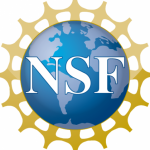PAC Up Your Research at NSF!
 The Perception, Action, & Cognition (PAC) program of the National Science Foundation has issued a special note (below) to psychological scientists and others, correcting myths and misperceptions that some may have about NSF funding and encouraging scientists to apply for support.
The Perception, Action, & Cognition (PAC) program of the National Science Foundation has issued a special note (below) to psychological scientists and others, correcting myths and misperceptions that some may have about NSF funding and encouraging scientists to apply for support.
NSF’s PAC program is one of the premier funders of psychological science research in the United States. It funds a wide range of areas related to human behavior, especially perceptual, motor, and cognitive processes and their interactions.
Central research topics for consideration by the program include (but are not limited to) vision, audition, haptics, attention, memory, written and spoken language, spatial cognition, motor control, categorization, reasoning, and concept formation.
Read the Perception, Action, & Cognition program page on NSF’s website, which contains key dates, program contacts, and more.
APS encourages contacting program officers by email to determine whether the envisioned project is a good match for the program. PAC’s program officials are Betty K. Tuller (btuller@nsf.gov) and Larry Gottlob (lgottlob@nsf.gov).
The next submission window for PAC opens July 15, 2019, and closes August 1, 2019. The winter submission window will open January 15, 2020, and close February 3, 2020.
NSF Sets the Record Straight:
Facts and Fiction about Funding
- MYTH: There is no money available at NSF for psychological science.
- FACT: The PAC budget actually has increased over the past years!
- MYTH: The success rate for NSF funding is so low that psychological scientists shouldn’t waste their time applying.
- FACT: The success rate isn’t that bad and hasn’t changed much; it ranges from 15% to 25% across the programs in NSF’s Behavioral and Cognitive Sciences division, which includes the PAC program.
- MYTH: NSF awards are too small. Psychological scientists are better off asking the National Institutes of Health (NIH) for funding.
- FACT: NSF awards have been increasing in size. Whether you submit to NIH or NSF should be based on the content and framing of the proposal. NSF does not fund research that is primarily biomedical in nature.
- MYTH: NSF funding is only for primary investigators at elite graduate institutions.
- FACT: NSF actively works to spread taxpayer dollars across the entire US and across all types of institutions.
- MYTH: NSF funds only “famous” academics and established scientists.
- FACT: NSF funds excellent scientists at any level, including those at the start of their careers.
- MYTH: Once a grant is declined, resubmissions are also likely to be declined.
- FACT: Many times, the first or second revision of a proposal is funded. KEEP TRYING!
- MYTH: NSF only funds “normal” or “safe” psychological science.
- FACT: NSF funds both safe and risky projects.
Interested in learning more? Click here to learn about the institutes and agencies that support research and training for psychological scientists.





APS regularly opens certain online articles for discussion on our website. Effective February 2021, you must be a logged-in APS member to post comments. By posting a comment, you agree to our Community Guidelines and the display of your profile information, including your name and affiliation. Any opinions, findings, conclusions, or recommendations present in article comments are those of the writers and do not necessarily reflect the views of APS or the article’s author. For more information, please see our Community Guidelines.
Please login with your APS account to comment.